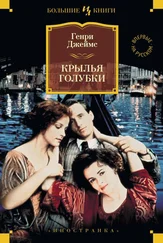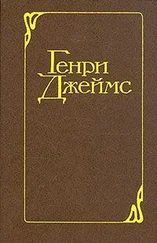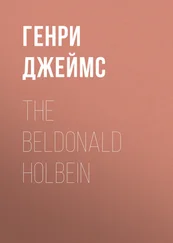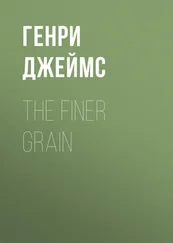Генри Джеймс - Italian Hours
Здесь есть возможность читать онлайн «Генри Джеймс - Italian Hours» — ознакомительный отрывок электронной книги совершенно бесплатно, а после прочтения отрывка купить полную версию. В некоторых случаях можно слушать аудио, скачать через торрент в формате fb2 и присутствует краткое содержание. Жанр: Путешествия и география, foreign_antique, на английском языке. Описание произведения, (предисловие) а так же отзывы посетителей доступны на портале библиотеки ЛибКат.
- Название:Italian Hours
- Автор:
- Жанр:
- Год:неизвестен
- ISBN:нет данных
- Рейтинг книги:5 / 5. Голосов: 1
-
Избранное:Добавить в избранное
- Отзывы:
-
Ваша оценка:
- 100
- 1
- 2
- 3
- 4
- 5
Italian Hours: краткое содержание, описание и аннотация
Предлагаем к чтению аннотацию, описание, краткое содержание или предисловие (зависит от того, что написал сам автор книги «Italian Hours»). Если вы не нашли необходимую информацию о книге — напишите в комментариях, мы постараемся отыскать её.
Italian Hours — читать онлайн ознакомительный отрывок
Ниже представлен текст книги, разбитый по страницам. Система сохранения места последней прочитанной страницы, позволяет с удобством читать онлайн бесплатно книгу «Italian Hours», без необходимости каждый раз заново искать на чём Вы остановились. Поставьте закладку, и сможете в любой момент перейти на страницу, на которой закончили чтение.
Интервал:
Закладка:
If the long reach from this point to the deplorable iron bridge which discharges the pedestrian at the Academy—or, more comprehensively, to the painted and gilded Gothic of the noble Palazzo Foscari—is too much of a curve to be seen at any one point as a whole, it represents the better the arched neck, as it were, of the undulating serpent of which the Canalazzo has the likeness. We pass a dozen historic houses, we note in our passage a hundred component “bits,” with the baffled sketcher’s sense, and with what would doubtless be, save for our intensely Venetian fatalism, the baffled sketcher’s temper. It is the early palaces, of course, and also, to be fair, some of the late, if we could take them one by one, that give the Canal the best of its grand air. The fairest are often cheek-by-jowl with the foulest, and there are few, alas, so fair as to have been completely protected by their beauty. The ages and the generations have worked their will on them, and the wind and the weather have had much to say; but disfigured and dishonoured as they are, with the bruises of their marbles and the patience of their ruin, there is nothing like them in the world, and the long succession of their faded, conscious faces makes of the quiet waterway they overhang a promenade historique of which the lesson, however often we read it, gives, in the depth of its interest, an incomparable dignity to Venice. We read it in the Romanesque arches, crooked to-day in their very curves, of the early middle-age, in the exquisite individual Gothic of the splendid time, and in the cornices and columns of a decadence almost as proud. These things at present are almost equally touching in their good faith; they have each in their degree so effectually parted with their pride. They have lived on as they could and lasted as they might, and we hold them to no account of their infirmities, for even those of them whose blank eyes to-day meet criticism with most submission are far less vulgar than the uses we have mainly managed to put them to. We have botched them and patched them and covered them with sordid signs; we have restored and improved them with a merciless taste, and the best of them we have made over to the pedlars. Some of the most striking objects in the finest vistas at present are the huge advertisements of the curiosity-shops.
The antiquity-mongers in Venice have all the courage of their opinion, and it is easy to see how well they know they can confound you with an unanswerable question. What is the whole place but a curiosity-shop, and what are you here for yourself but to pick up odds and ends? “We pick them up for you,” say these honest Jews, whose prices are marked in dollars, “and who shall blame us if, the flowers being pretty well plucked, we add an artificial rose or two to the composition of the bouquet?” They take care, in a word, that there be plenty of relics, and their establishments are huge and active. They administer the antidote to pedantry, and you can complain of them only if you never cross their thresholds. If you take this step you are lost, for you have parted with the correctness of your attitude. Venice becomes frankly from such a moment the big depressing dazzling joke in which after all our sense of her contradictions sinks to rest—the grimace of an over-strained philosophy. It’s rather a comfort, for the curiosity-shops are amusing. You have bad moments indeed as you stand in their halls of humbug and, in the intervals of haggling, hear through the high windows the soft splash of the sea on the old water-steps, for you think with anger of the noble homes that are laid waste in such scenes, of the delicate lives that must have been, that might still be, led there. You reconstruct the admirable house according to your own needs; leaning on a back balcony, you drop your eyes into one of the little green gardens with which, for the most part, such establishments are exasperatingly blessed, and end by feeling it a shame that you yourself are not in possession. (I take for granted, of course, that as you go and come you are, in imagination, perpetually lodging yourself and setting up your gods; for if this innocent pastime, this borrowing of the mind, be not your favourite sport there is a flaw in the appeal that Venice makes to you.) There may be happy cases in which your envy is tempered, or perhaps I should rather say intensified, by real participation. If you have had the good fortune to enjoy the hospitality of an old Venetian home and to lead your life a little in the painted chambers that still echo with one of the historic names, you have entered by the shortest step into the inner spirit of the place. If it did n’t savour of treachery to private kindness I should like to speak frankly of one of these delightful, even though alienated, structures, to refer to it as a splendid example of the old palatial type. But I can only do so in passing, with a hundred precautions, and, lifting the curtain at the edge, drop a commemorative word on the success with which, in this particularly happy instance, the cosmopolite habit, the modern sympathy, the intelligent, flexible attitude, the latest fruit of time, adjust themselves to the great gilded, relinquished shell and try to fill it out. A Venetian palace that has not too grossly suffered and that is not overwhelming by its mass makes almost any life graceful that may be led in it. With cultivated and generous contemporary ways it reveals a pre-established harmony. As you live in it day after day its beauty and its interest sink more deeply into your spirit; it has its moods and its hours and its mystic voices and its shifting expressions. If in the absence of its masters you have happened to have it to yourself for twenty-four hours you will never forget the charm of its haunted stillness, late on the summer afternoon for instance, when the call of playing children comes in behind from the campo, nor the way the old ghosts seemed to pass on tip-toe on the marble floors. It gives you practically the essence of the matter that we are considering, for beneath the high balconies Venice comes and goes, and the particular stretch you command contains all the characteristics. Everything has its turn, from the heavy barges of merchandise, pushed by long poles and the patient shoulder, to the floating pavilions of the great serenades, and you may study at your leisure the admirable Venetian arts of managing a boat and organising a spectacle. Of the beautiful free stroke with which the gondola, especially when there are two oars, is impelled, you never, in the Venetian scene, grow weary; it is always in the picture, and the large profiled action that lets the standing rowers throw themselves forward to a constant recovery has the double value of being, at the fag-end of greatness, the only energetic note. The people from the hotels are always afloat, and, at the hotel pace, the solitary gondolier (like the solitary horseman of the old-fashioned novel) is, I confess, a somewhat melancholy figure. Perched on his poop without a mate, he re-enacts perpetually, in high relief, with his toes turned out, the comedy of his odd and charming movement. He always has a little the look of an absent-minded nursery-maid pushing her small charges in a perambulator.
But why should I risk too free a comparison, where this picturesque and amiable class are concerned? I delight in their sun-burnt complexions and their childish dialect; I know them only by their merits, and I am grossly prejudiced in their favour. They are interesting and touching, and alike in their virtues and their defects human nature is simplified as with a big effective brush. Affecting above all is their dependence on the stranger, the whimsical stranger who swims out of their ken, yet whom Providence sometimes restores. The best of them at any rate are in their line great artists. On the swarming feast-days, on the strange feast-night of the Redentore, their steering is a miracle of ease. The master-hands, the celebrities and winners of prizes—you may see them on the private gondolas in spotless white, with brilliant sashes and ribbons, and often with very handsome persons—take the right of way with a pardonable insolence. They penetrate the crush of boats with an authority of their own. The crush of boats, the universal sociable bumping and squeezing, is great when, on the summer nights, the ladies shriek with alarm, the city pays the fiddlers, and the illuminated barges, scattering music and song, lead a long train down the Canal. The barges used to be rowed in rhythmic strokes, but now they are towed by the steamer. The coloured lamps, the vocalists before the hotels, are not to my sense the greatest seduction of Venice; but it would be an uncandid sketch of the Canalazzo that shouldn’t touch them with indulgence. Taking one nuisance with another, they are probably the prettiest in the world, and if they have in general more magic for the new arrival than for the old Venice-lover, they in any case, at their best, keep up the immemorial tradition. The Venetians have had from the beginning of time the pride of their processions and spectacles, and it’s a wonder how with empty pockets they still make a clever show. The Carnival is dead, but these are the scraps of its inheritance. Vauxhall on the water is of course more Vauxhall than ever, with the good fortune of home-made music and of a mirror that reduplicates and multiplies. The feast of the Redeemer—the great popular feast of the year—is a wonderful Venetian Vauxhall. All Venice on this occasion takes to the boats for the night and loads them with lamps and provisions. Wedged together in a mass it sups and sings; every boat is a floating arbour, a private café-concert . Of all Christian commemorations it is the most ingenuously and harmlessly pagan. Toward morning the passengers repair to the Lido, where, as the sun rises, they plunge, still sociably, into the sea. The night of the Redentore has been described, but it would be interesting to have an account, from the domestic point of view, of its usual morrow. It is mainly an affair of the Giudecca, however, which is bridged over from the Zattere to the great church. The pontoons are laid together during the day—it is all done with extraordinary celerity and art—and the bridge is prolonged across the Canalazzo (to Santa Maria Zobenigo), which is my only warrant for glancing at the occasion. We glance at it from our palace windows; lengthening our necks a little, as we look up toward the Salute, we see all Venice, on the July afternoon, so serried as to move slowly, pour across the temporary footway. It is a flock of very good children, and the bridged Canal is their toy. All Venice on such occasions is gentle and friendly; not even all Venice pushes anyone into the water.
Читать дальшеИнтервал:
Закладка:
Похожие книги на «Italian Hours»
Представляем Вашему вниманию похожие книги на «Italian Hours» списком для выбора. Мы отобрали схожую по названию и смыслу литературу в надежде предоставить читателям больше вариантов отыскать новые, интересные, ещё непрочитанные произведения.
Обсуждение, отзывы о книге «Italian Hours» и просто собственные мнения читателей. Оставьте ваши комментарии, напишите, что Вы думаете о произведении, его смысле или главных героях. Укажите что конкретно понравилось, а что нет, и почему Вы так считаете.












